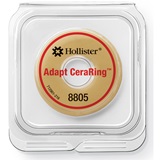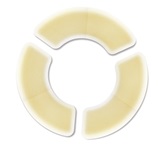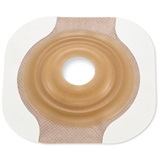Navigating Insurance Coverage for Your Ostomy Products
It can be challenging to understand insurance coverage for your ostomy supplies. Once you understand the basics, you’ll have a better chance of getting these products covered or reimbursed.

Learn about ostomy product insurance coverage options.
Insurance plans can be complicated and difficult to navigate. If you have an ongoing need for ostomy supplies, it’s important to understand your health insurance options. The good news is that there are several ways to get your ostomy products covered. Between Medicare, Medicaid, and private insurance plans, there is a resource for everyone.
Below is a brief overview of each option:
| Medicare | Medicaid | Private Insurance | |
| Insurer | Federal government | Federal and state governments (joint program) | Private insurance companies |
| Overview | A federal system of health insurance for certain younger people with disabilities, as well as for people over 65 years of age | Provides help with medical costs for some people with low incomes and limited resources | Offered to the general public with rules and requirements varying by each insurer (governed by healthcare laws) |
| Eligibility | — Must be a permanent resident of the US — You or your spouse worked and paid taxes 10+ years — 65+ years of age — Under 65 years of age but have collected Social Security Disability Insurance for 2+ years |
Medicaid has extensive rules for determining an individual’s income and resources to be eligible for the program. In addition, eligibility varies from state to state. | Eligibility varies by plan, but requirements under the Affordable Care Act (ACA) rules mandate private insurers cannot deny you for a pre-existing condition |
| Additional details | Individuals can purchase Medicare supplement or Medicare Advantage plans from private insurers for out-of-pocket costs and other healthcare expenses that may not be covered | Medicaid is the only national program that pays for a full range of services that help individuals with disabilities to live in their own homes and communities. Most states, however, spend 70% or more of their Medicaid funding on nursing homes. | Premiums, out-of-pocket costs, copayments, and deductibles all vary by plan, so shopping around is vital |
How Medicare coverage works
Since Medicaid varies by state, and private insurance coverage varies by individual plans, we’ll focus on Medicare.
Medicare offers hospital insurance (Medicare Part A) that covers inpatient hospital stays, skilled nursing facility stays, and some home health care. It also offers medical insurance (Medicare Part B) that covers outpatient hospital services, certain home health services, durable medical equipment, and eligible physician services.
Medicare Part B coverage requires a monthly premium payment and there is also an annual deductible (i.e., an amount you need to pay before the coverage kicks in). Medicare determines an allowable fee for each product and service. Once the beneficiary’s deductible is met, Medicare covers 80% of the cost and the beneficiary is responsible for the remaining 20%. Individuals may separately buy a supplemental insurance policy to help pay for the remaining 20% of costs.
Ostomy product coverage under standard Medicare
Ostomy supplies are covered for people with a surgically created opening (i.e., stoma) to divert urine or fecal contents outside the body. Medicare coverage for ostomy supplies depends on your healthcare setting – that is, whether it’s home, home health care, skilled nursing facility, or custodial care (i.e., residing in a nursing home or assisted living facility without the need for skilled care).
For home and custodial care, users can order 1 to 3 month’s supply of ostomy products at a time. For individuals under the care of a home health agency or skilled nursing facility, ostomy products are typically covered in the overall services provided by the agency/facility. The amount of ostomy products provided will vary by agency/facility.
Furthermore, the optimal quantity of ostomy supplies needed depends on the type of ostomy, its location on the abdomen, its construction, and the condition of the skin around the stoma. Individual needs will vary, and a person’s needs may change over time. Payment for supplies requires a physician’s order and the ostomy product supplier usually obtains the order. If this is the first time you require ostomy products, or if you need more products or different products, an order from your physician will be required.
Medicare allows a maximum quantity of ostomy supplies each month. Your needs will be determined by your physician and must be on your order and in your medical record. If you require a quantity of supplies above the maximum, your physician will need to provide a medical justification for them. Your ostomy supplier will need to have that medical justification on file when billing Medicare for your products.
For additional information about Medicare, visit Medicare.gov.
Hollister Secure Start℠ services is here for you
Whether you've had your stoma for several years, a few weeks, or are planning to have ostomy surgery, insurance coverage for ostomy products can be a big concern. Hollister Secure Start℠ services can help you find an in-network supplier of your choice that can provide you with the brand of ostomy products you prefer.
Call us at 1.888.808.7456 to set up your first ostomy product order, resolve any ordering issues, or speak with a nurse about your product usage.
Please note the information stated herein is based on Medicare.gov and CMS Ostomy Supply LCD L33828 and is provided for informational purposes only. It may be out of date or otherwise not accurate and is not intended to be a complete description of benefits. Hollister does not guarantee coverage of payment for any products. Limitations, copayments and restrictions may apply.
- 2 Shares
- 23 Recommended





 Call Us
Call Us  Email Us
Email Us  Join Us!
Join Us!  Sign Up
Sign Up 